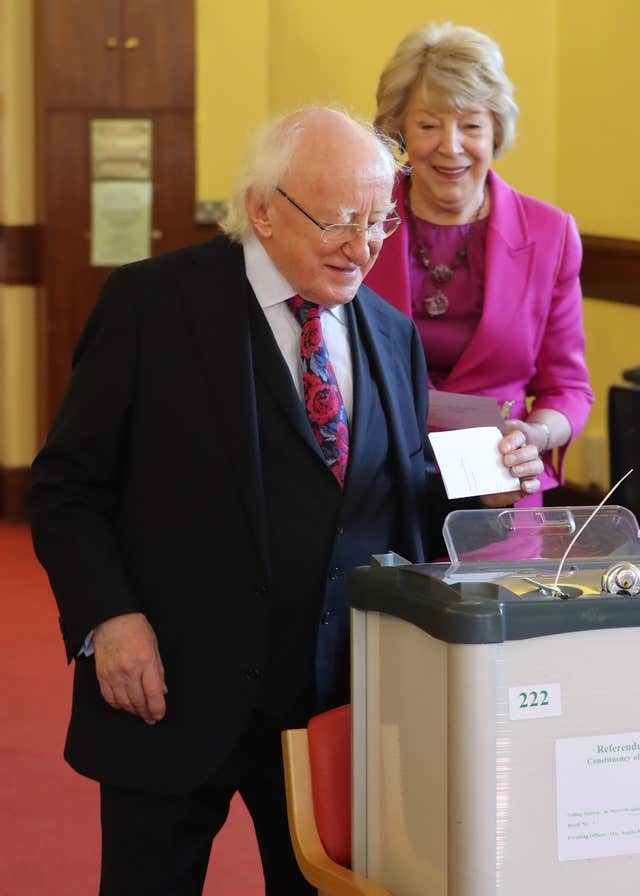
The bill repealing the Eighth Amendment, amending Ireland’s abortion laws was signed on Tuesday by the President of Ireland.
The Irish electorate voted to repeal the Eighth Amendment in May’s referendum, with just under 67% voting in favour of repeal.
Donegal was the only constituency to vote against the proposal.

A delay was caused on the result formally being enacted into law by a number of legal cases seeking to challenge the result of the referendum.
The last of these appeals was dismissed by the Supreme Court earlier this month.
By voting to repeal the Eighth, the country voted to introduce the 36th Amendment Of The Constitution.
In accordance with Article 46 of the Constitution, President Michael D Higgins signed the Thirty-Sixth Amendment Of the Constitution Bill 2018, and it has become law.

The Eighth Amendment Of The Constitution Act was effected after a referendum in 1983 which asked Irish people to vote on Ireland’s abortion laws. It passed with a 67% majority.
The amendment read at the time: “The State acknowledges the right to life of the unborn and, with due regard to the equal right to life of the mother.”
Abortion was previously a criminal offence in Ireland under the Offences Against the Person Act 1861.
Minister for Health Simon Harris has indicated the government will aim to introduce legislation providing for abortion by the beginning of 2019 at the latest.
The 8th amendment is now officially gone from our constitution. So many of you worked so hard to make this a reality. Legislation to Cabinet next week and into Dáil in October pic.twitter.com/PVO1Lw536w
— Simon Harris TD (@SimonHarrisTD) September 18, 2018
Draft measures would allow relatively free access to abortions, subject to consultation with a medical professional and after a short waiting period, up to 12 weeks after gestation and up to 24 weeks with restrictions.
If, after 12 weeks, a woman’s life is threatened or there could be serious harm to her health, two doctors will consider whether to allow the procedure.
Terminations will not be carried out after the foetus becomes viable, following 24 weeks of pregnancy.
The Irish Family Planning Association (IFPA) has already said it was committed to offering the procedures.


Comments: Our rules
We want our comments to be a lively and valuable part of our community - a place where readers can debate and engage with the most important local issues. The ability to comment on our stories is a privilege, not a right, however, and that privilege may be withdrawn if it is abused or misused.
Please report any comments that break our rules.
Read the rules here